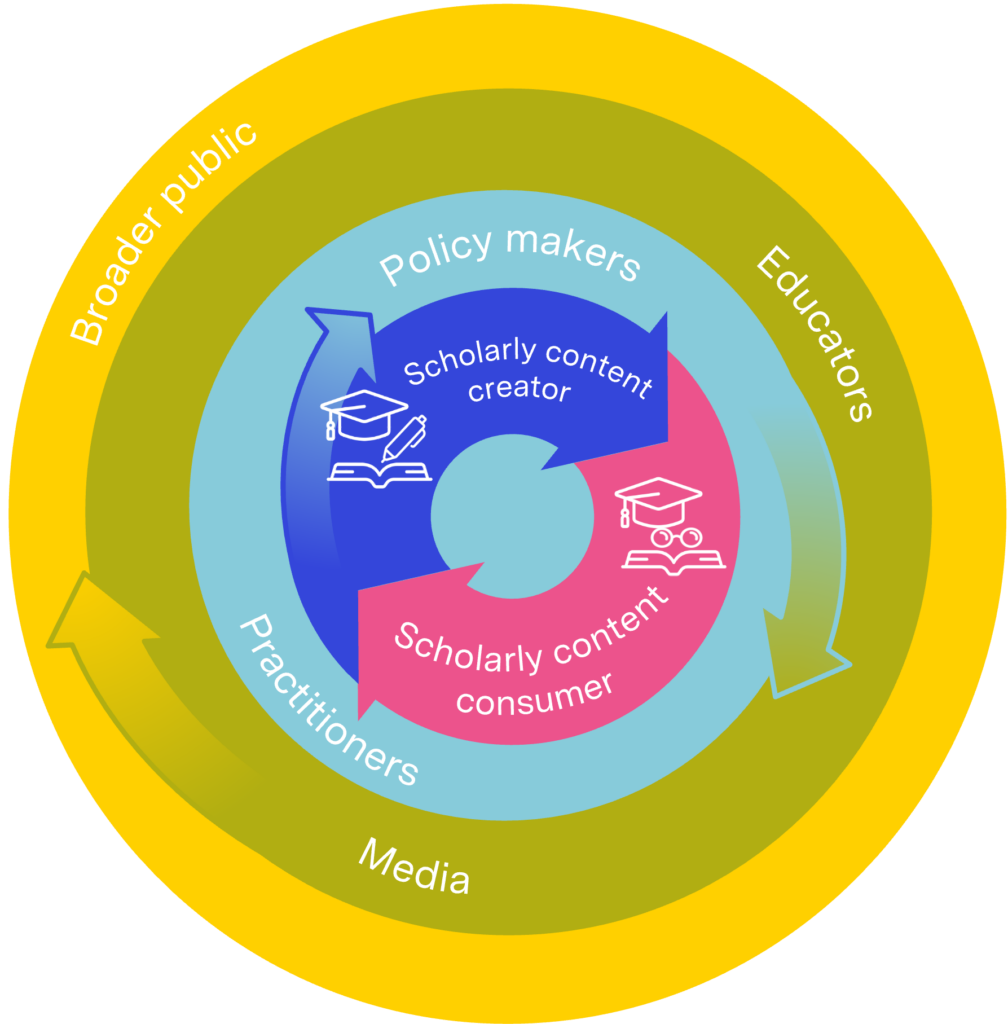The question of what role social media can play in contributing to scholarly reputation is a thorny one. It cannot be answered without first considering what scholarly reputations are built on overall, and the extent to which scholars themselves feel it is possible or appropriate to manage their reputation actively (as opposed to letting it grow organically). There are then questions around whether it is possible to measure reputation, and if so, what kind of proxy metrics are valid or valuable. And then, once the social ball is in play, there are questions about how and where scholarly endeavours - from organising and conducting research, to distributing its outputs - benefit from social activities and mechanisms.
These are all questions that we've been exploring in the last couple of years as Kudos has grown, and we're delighted and honoured that we've now been invited to help facilitate a European Commission study of this topic. The project is being led by the Institute for Prospective Technological Studies, which has contracted CIBER to carry out focus groups and surveys to gather input from scholars. CIBER are partnering with Kudos to broaden responses to a survey for scholars, which invites them to answer questions such as:
- Which activities contribute to scholarly reputation?
- Should social media metrics be counted towards scholarly reputation?
- Will ‘reputational platforms’ become a more important force in future career development/progression?
- Will online services that help build, maintain and showcase scholarly reputation benefit young scholars more than established scholars?
Professor David Nicholas explains why CIBER chose Kudos as a partner for this research: "Kudos is cross-publisher, and one of the few organisations expressly focussed on helping scholars manage their reputation. This means the 22,000 researchers registered to use Kudos are already thinking about some of the issues we're exploring, and should therefore be interested in participating in our study."
We'll shortly be sending registered Kudos authors a link to the survey. More information about the project can be found in the July 2014 edition of IS News (the newsletter of the European Commission's Information Society; see page 13):
"Alternative mechanisms offered by Science 2.0 have the potential to bring more actors to science. In addition to those who have a “traditional academic profile”, there are scholars with “new profiles” and non-traditional academic backgrounds (e.g. freelance scientists), or even “new actors” in science (e.g. innovators who have gained a reputation in the field by winning a prize or running a citizen science project). Conventional indicators of high-impact publications and citation mechanisms do not adequately reflect contributors’ reputations or the impact of their work. The second part of the [European Commission's Science 2.0] study focuses on new platforms for scholarly reputation that are emerging in science. [CIBER] will approach the research questions in a qualitative manner, first scoping out the field for examples of relevant practices. These practices will be classified and mapped, and a small number of interesting ones will be developed into in-depth case studies. JRC-IPTS will integrate the findings with a validation workshop ... The aim is to understand what opportunities and challenges are presented by these alternative mechanisms for current European policy in the field of scientific research."
Do contact us if you're interested in learning more.



